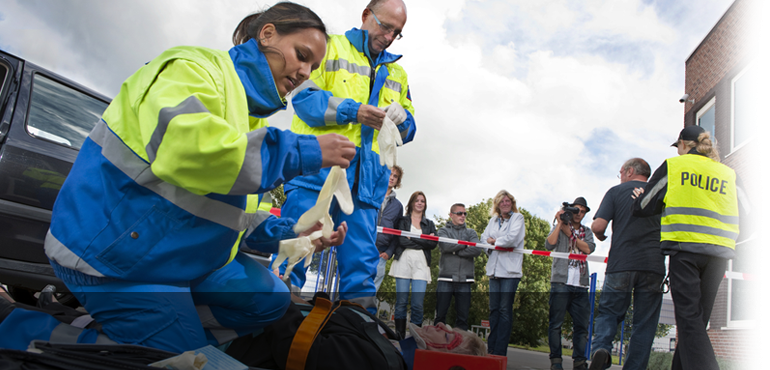| Toll Free : 1844 495 7333(injury hotline- new cases only) | |
| Text a Personal Injury Lawyer 24/7 and get instant help.TM (416 931 5015) | |
| Head Office : 905 495 7333 |
Caring for Caregivers: Common Challenges Faced By Caregivers Caring for Injured Victims
May 16, 2017Catastrophic accidents can cause life-altering injuries. Injured victims and their families are suddenly faced with huge physical, financial and emotional burdens that they may find difficult to cope with.
- The physical aspects are the most obvious, if the person loses their independent mobility and has to be confined to a bed or wheel-chair, either permanently or for an extended period. It could also entail having regular treatments, physiotherapy and rehabilitation procedures.
- The emotional/mental factors are perhaps less noticeable, but they have an equally serious impact on the victim and the family. Depression, rage, mood-swings, suicidal tendencies, drug or alcohol dependence, sleep disturbances, panic attacks, post-traumatic stress etc are some of the devastating psychological consequences of serious accidents.
- Financially, the family has to cope with the increased outflow of funds for treatment, rehabilitation and care, along with the reduce inflow due to loss of wages and earning capacity of the injured person.
Hiring a professional caregiver may not be possible in the case of limited funds available with the family. It’s often a family-member who takes charge of the responsibility of providing care.
This person/persons may face certain unique challenges and in time, require support emotionally/physically. Grief, regret, guilt, managing the physical, emotional and financial affairs of the injured person, dealing with the changing power-structures within families, and added responsibilities can make huge foundational changes.
Facilities like Toronto’s Runnymede Healthcare Centre have introduced social-workers who can help family-members of injured victims to cope with the pressures.
The government of Canada has instituted a Ministry of Health and Long-term Care which regulates and addresses issues faced by this sector.
Caring About Caregivers Long-Range Scenario Planning: LRSP
Launched in 2008, this project recommends themes for future strategies and policy developments. It is estimated that at least one in five Ontarians is a family caregiver. By 2011 it was presumed that at least 1.4 million women between ages 25-44 may have to become caregivers, deal with family responsibilities, work and their own personal social lives. Informal care is estimated to top $80 billion in economic value.
Today, the traditional systems of informal care-giving are disappearing, with the changing role of the family. Single-parent families, unmarried/single individuals with/without children, etc are some of the different types of families that have become the norm.
Support for caregivers has assumed a critical and urgent need. Despite the myriad challenges, most families try to provide support and care in spite of the many pressures. It’s not possible to isolate this essential service from social and community responsibilities.
Home-care cannot have the same set of standards imposed as a formal health-care facility. Family-members, neighbors, volunteers and charity organizations cope with each case on an individual basis. Lack of training and information cause several issues. Caregivers face huge personal financial and social losses.
- 46% of caregivers face emotional stress
- 14% experience constant physical stress or pain
- 15% face verbal and physical abuse from those they care for
- 19% are themselves frail, disabled, elderly and in need of care themselves
Keeping these factors in mind, it’s important to get compensation from those responsible for the accident that caused your injury to make life a little more comfortable and easy.
Caring for Caregivers: Common Challenges Faced By Caregivers Caring for Injured Victims
May 16, 2017Catastrophic accidents can cause life-altering injuries. Injured victims and their families are suddenly faced with huge physical, financial and emotional burdens that they may find difficult to cope with.
- The physical aspects are the most obvious, if the person loses their independent mobility and has to be confined to a bed or wheel-chair, either permanently or for an extended period. It could also entail having regular treatments, physiotherapy and rehabilitation procedures.
- The emotional/mental factors are perhaps less noticeable, but they have an equally serious impact on the victim and the family. Depression, rage, mood-swings, suicidal tendencies, drug or alcohol dependence, sleep disturbances, panic attacks, post-traumatic stress etc are some of the devastating psychological consequences of serious accidents.
- Financially, the family has to cope with the increased outflow of funds for treatment, rehabilitation and care, along with the reduce inflow due to loss of wages and earning capacity of the injured person.
Hiring a professional caregiver may not be possible in the case of limited funds available with the family. It’s often a family-member who takes charge of the responsibility of providing care.
This person/persons may face certain unique challenges and in time, require support emotionally/physically. Grief, regret, guilt, managing the physical, emotional and financial affairs of the injured person, dealing with the changing power-structures within families, and added responsibilities can make huge foundational changes.
Facilities like Toronto’s Runnymede Healthcare Centre have introduced social-workers who can help family-members of injured victims to cope with the pressures.
The government of Canada has instituted a Ministry of Health and Long-term Care which regulates and addresses issues faced by this sector.
Caring About Caregivers Long-Range Scenario Planning: LRSP
Launched in 2008, this project recommends themes for future strategies and policy developments. It is estimated that at least one in five Ontarians is a family caregiver. By 2011 it was presumed that at least 1.4 million women between ages 25-44 may have to become caregivers, deal with family responsibilities, work and their own personal social lives. Informal care is estimated to top $80 billion in economic value.
Today, the traditional systems of informal care-giving are disappearing, with the changing role of the family. Single-parent families, unmarried/single individuals with/without children, etc are some of the different types of families that have become the norm.
Support for caregivers has assumed a critical and urgent need. Despite the myriad challenges, most families try to provide support and care in spite of the many pressures. It’s not possible to isolate this essential service from social and community responsibilities.
Home-care cannot have the same set of standards imposed as a formal health-care facility. Family-members, neighbors, volunteers and charity organizations cope with each case on an individual basis. Lack of training and information cause several issues. Caregivers face huge personal financial and social losses.
- 46% of caregivers face emotional stress
- 14% experience constant physical stress or pain
- 15% face verbal and physical abuse from those they care for
- 19% are themselves frail, disabled, elderly and in need of care themselves
Keeping these factors in mind, it’s important to get compensation from those responsible for the accident that caused your injury to make life a little more comfortable and easy.









